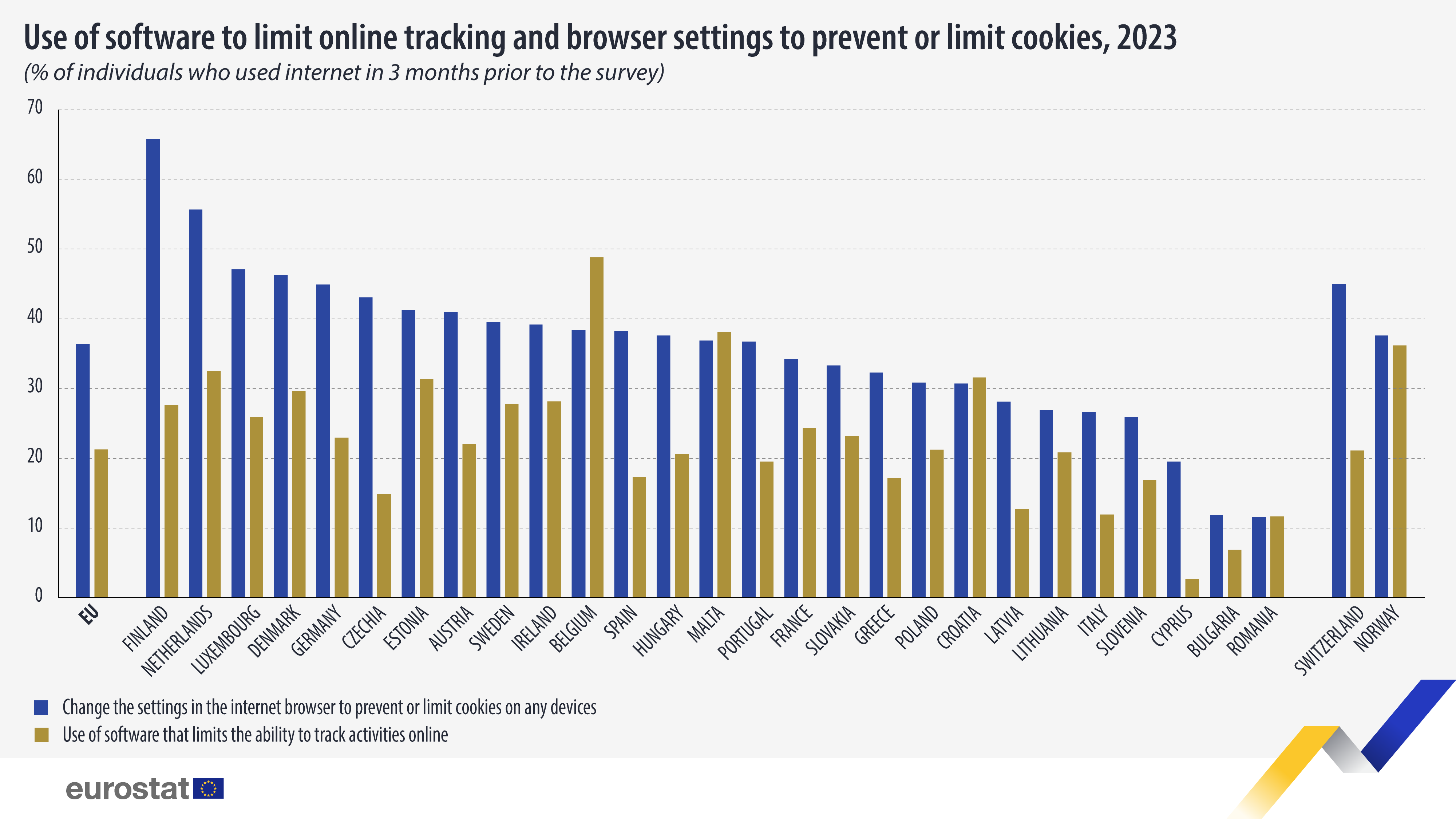Safer Internet Day: are you managing cookies?

In 2023, slightly above one third (36%) of people in the EU aged 16 to 74 who used the internet in the 3 months prior to the survey reported that they had changed their internet browser settings to prevent or limit cookie use.
Only 21% used software that limits the ability to track their activities on the internet.
Source dataset: isoc_cisci_prv20
When it comes to changing the internet browser settings to prevent or limit cookies, the highest proportion of internet users, as compared with the EU average, was found in Finland (66%), the Netherlands (56%), followed by Luxembourg (47%), Denmark (46%) and Germany (45%).
By contrast, lower shares of the internet users had taken such action in Romania and Bulgaria (both 12%), Cyprus (20%), Slovenia (26%) and Italy (27%).
Among the EU countries, almost half of internet users in Belgium were cautious about online tracking, with 49% using software to limit the ability to track activities online. They were followed by users in Malta (38%), the Netherlands and Croatia (both 32%) and Estonia (31%).
By contrast, the lowest shares of users that use this kind of software were in Cyprus (3%), Bulgaria (7%), Romania and Italy (both 12%) and Latvia (13%).
Young people more likely to restrict cookies
People aged 25 to 34 recorded the highest average (45%) of those who changed the settings in their internet browser to prevent or limit cookies.
The use of software that limits the ability to track activities on the internet was the highest (24%) among people aged 16-24.
This news item marks the Safer Internet Day celebrated on 6th of February.
For more information
- Statistics Explained article on digital economy and society statistics - households and individuals
- Thematic section on digital economy and society
- Database on digital economy and society
Methodological notes
- The data in this article are based on the annual survey on the use of ICT in households and by individuals. The results above refer to individuals’ experiences during the last 3 months prior to the survey, i.e. the first quarter of 2023.
- Ireland: no data available for 16-34 years old
If you have any queries, please visit our contact us page.

